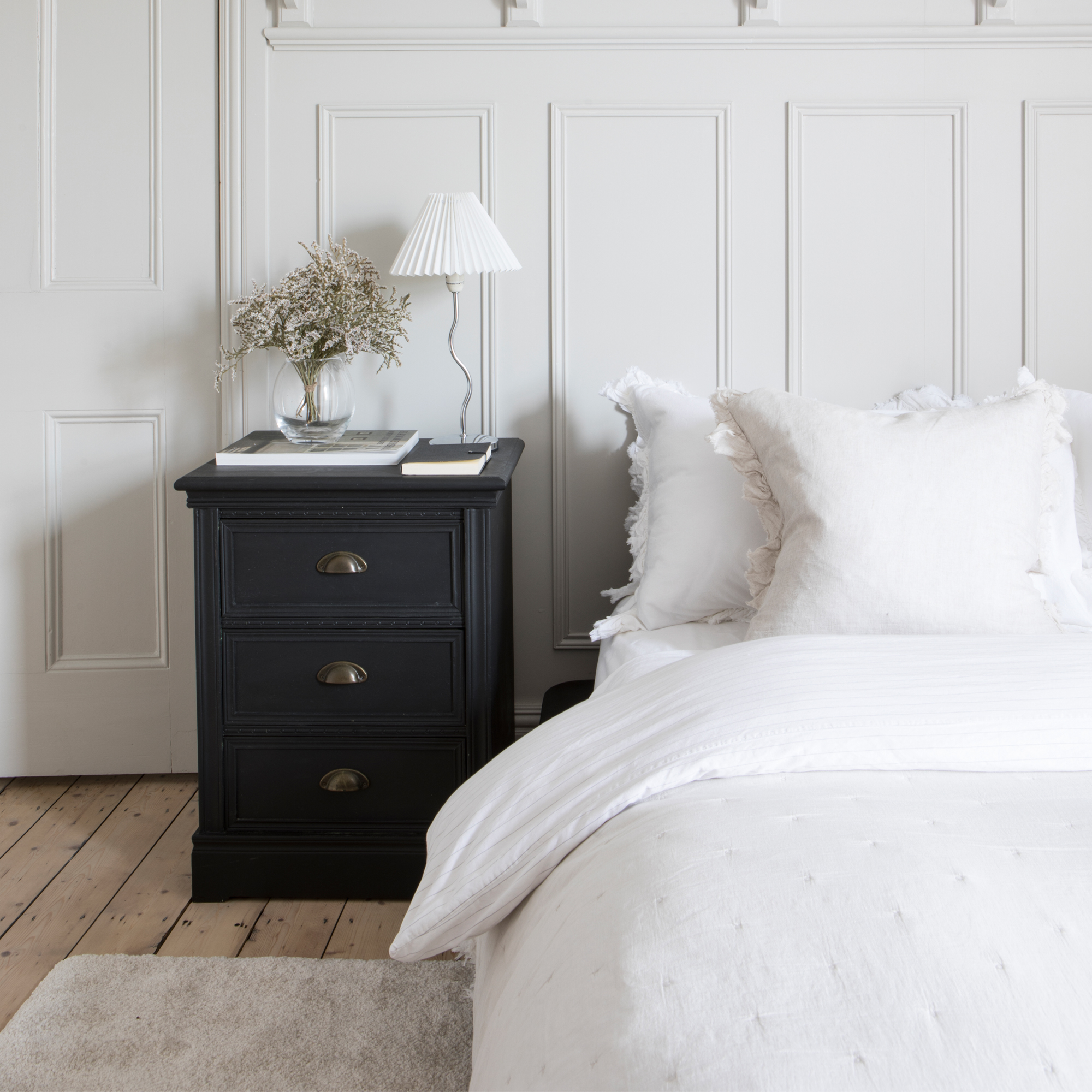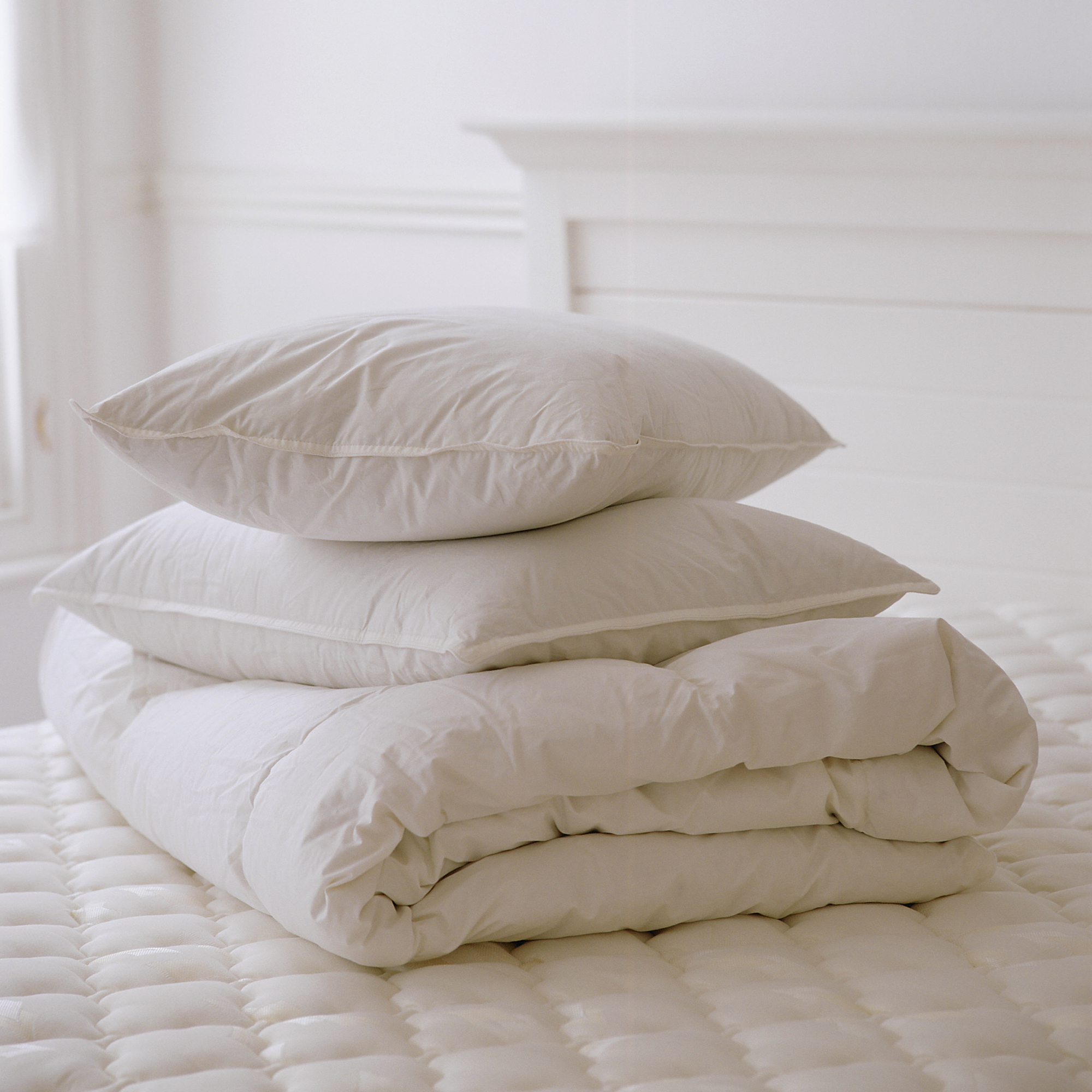
Wondering how often you should wash your bedding in the summer? Thanks to a heatwave and temperatures in the UK topping 30°C, it's a question many of us are likely pondering.
The official advice on how often to change bed sheets is once every one to two weeks – whether the mercury is soaring or not – but should you be upping your laundry routine even more during the hot weather?
I put the question to a variety of bedding and household cleaning experts to get the official verdict.

'One of the most common household cleaning questions is whether people are washing their bedding enough,' says Sally Bonser, sleep expert at Silentnight. 'And the most common answer to this is, probably not enough.'
'Our beds can become a hotspot for dust mites, dead skin cells, and bacteria, which are natural and common things to find in your bed,' says Sally. 'Over time, these nasties build up. In warmer months, when we naturally sweat more, our duvets, sheets, and pillows can unfortunately become a hotbed for bacteria.'
Perhaps unsurprisingly, this issue of increased sweating is at the crux of a summer bedding cleaning routine.
Britain tends to get very humid when the temperature rises, and although we can adopt several ways to stay cool in bed – from choosing the right thread count for summer bed linen to avoiding the hidden sleep thief that is polyester – the likelihood is we're still going to get hot and sticky at night.
'To prevent an excess of germs and bacteria, your bedding ideally should be washed once a week, two weeks at most, to ensure a completely clean sleep space,' says Sally. 'This includes your bottom sheet, duvet cover, and pillow cover.'

However, if you know you woke up hot and sweaty in the night, or in the morning, then it makes sense to wash your bedding even more frequently in warm weather.
'Every night, the average person sweats at least 200ml of liquid,' reveals Martin Seeley, CEO and sleep expert at MattressNextDay. But that amount is likely to increase during hot weather, and if you don't clean bedding regularly enough, it can become damaged.
'Yellow stains on pillows can be caused by various factors,' says Petya Holevich, cleaning expert at Fantastic Services, 'but the most common reasons are sweat and natural body oils produced by your skin.' This applies to duvets as well as pillows. 'People should ideally wash their bed linen every one to two weeks to remove the sweat and body oils, but more so in hot weather,' says Petya.
Increasing your washing routine when you're extra sweaty won't just reduce the need to get rid of yellow stains on pillows, ultimately it can also mean you won't need to replace your pillow or replace your duvet so often.

Good bedding hygiene – such as adding one of the best mattress protectors to your bed, and washing the mattress protector regularly – can also reduce the need to clean your mattress, a much trickier task.
Plus, regular bedding changes can even mean you won't need to replace your mattress as soon as you might otherwise (and none of us wants to do *that* expensive investment more often than needs be!)
As a guide, Aureen Chinchpure, brand manager at Pizuna Bed Linens, recommends this cleaning schedule for bedding during the summer months. 'It's recommended to wash different parts of the bedding after different periods of time,' says Aureen. Just remember to use your common sense and increase the frequency if anyone sleeping in the bed has a particularly sweaty night's sleep.
- Pillowcases – once a week
- Bed sheets/bed linen – once a week
- Duvet covers – once a week
- Blankets and Duvets – every 2 to 3 months
- Pillows – every 4 to 6 months

Whilst we may not welcome adding an extra household chore to our list during the summer months, there is some good news. Warm weather also means faster drying times, so we should be able to wash our sheets and get them back on the bed in the same day - if not the same afternoon - in hot and sunny weather.
My top tip? Make sure you have enough sets of bedding so that wash day doesn't become stressful. There's nothing worse than heading off to bed super tired, and then realising you stripped the bed and haven't remade it. Experts recommend at least two sets of sheets, duvet covers, and pillowcases per bed so you can have one on the bed and one in the wash at all times.
Now, if you'll excuse me, I'm off to go put my washing machine on.







